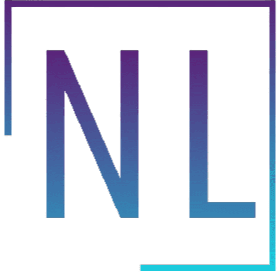New Student Debt Relief Rules Expand Eligibility

Posted on November 25, 2022.
Regulations ensure borrower rights and limit interest capitalization on loans
The U.S. Department of Education (DOE) released final regulations today, Oct. 31, 2022, that aim to clarify, streamline, and expand the eligibility of targeted debt relief programs for student loan borrowers.
KEY TAKEAWAYS
- Final regulations were announced today, Oct. 31, 2022, to expand eligibility of targeted debt relief for student loan borrowers.
- The new rules establish borrower defense to repayment and arbitration rights if their lender mislead or manipulated them.
- Students with loans to schools that subsequently closed are eligible for automatic discharge if the closure occurred while attending or within 180 days of leaving the school before it closed.
- The rules also establish loan discharges for those who are totally or permanently disabled.
- Loan interest capitalization has been eliminated unless it was established by statute.
The Last Update
Primarily, the final regulations expand the number of borrowers who can seek and receive relief for loans to schools that have closed, if the loan was falsely certified, or if the borrower has a complete or permanent disability. The rules also seek to make the process fairer for borrowers to present a repayment defense and potentially have their day in court to seek loan discharge if their college or lender deceived them. Lastly, the rules will help students avoid ever-increasing debt by doing away with interest capitalization that is not required by law, which can add ever-ballooning interest to the principal of their loan balances.
“Today is a monumental step forward in the Biden-Harris team’s efforts to fix a broken student loan system and build one that’s simpler, fairer, and more accountable to borrowers,” U.S. Secretary of Education Miguel Cardona said. “These transformational changes will protect students who’ve been cheated by their colleges from the bureaucratic nightmares of the past and ensure that all our targeted debt relief programs live up to the promises made by Congress in the Higher Education Act. We’re also protecting borrowers from higher costs by limiting the practice of tacking unpaid student loan interest onto their principal balances."
Elements of The New Regulations
Borrower Defense to Repayment and Arbitration
The DOE regulation establishes a framework for student loan borrowers to present a defense against loan repayment if their lender or bank mislead or manipulated them. This framework includes the ability to decide claims individually or as a group, which can be formed by the Secretary of Education or in response to a request from a state official or entity, such as an attorney general, or a nonprofit legal assistance organization. Claims may be based on one of five categories of actionable circumstances: lender or school misrepresentation, omission of substantial fact, breach of contract, aggressive and deceptive recruitment, or judgments. These criteria will apply to all claims pending on or received on or after July 1, 2023.
Closed School Discharges
To address the fact that large numbers of borrowers have not obtained discharges they were eligible for after their school closed and ended up having their loans go into default, the DOE regs will provide an automatic discharge. These discharges will automatically occur one year after a college’s closure date for borrowers who were enrolled at the time of closure or left 180 days before closure and who do not accept an approved teach-out agreement or a continuation of the program at another location of the school.
Total and Permanent Disability Discharges
The final rule provides more ways for student loan borrowers who have a total and permanent disability to receive a discharge of their loan balances. This includes allowing borrowers who receive additional types of disability assistance from the Social Security Administration (SSA) to qualify for a discharge. The rule also eliminates the three-year income monitoring requirement that too often caused borrowers to lose their discharges solely because they failed to respond to paperwork requests.
Interest Capitalization
Interest capitalization happens when unpaid interest is added to the principal balance of a student loan. Once loan interest capitalizes, borrowers are then charged even higher amounts of interest on the resulting larger principal balance. The new regulation eliminates all instances where interest capitalization can occur as long as it is not required by statute. This means interest will no longer be added to a borrower’s principal balance the first time a borrower begins repayment, when concluding a forbearance, and exiting any type of repayment plan besides Income-Based Repayment. This includes the repayment programs known as Pay As You Earn (PAYE) and Revised Pay As You Earn (REPAYE) plans.
Public Service Loan Forgiveness
The rules also provide major benefits for student loan borrowers who are seeking Public Service Loan Forgiveness (PSLF).
False Certification
The final rules also provide student loan borrowers with an easier way to obtain a discharge when a college falsely certifies a borrower’s eligibility for student loans when, in fact, the student was ineligible. The streamlining will increase the amount of allowable documentation, clarify the discharge dates, and allow for the potential of loan discharges for groups of borrowers.
Source: Investopedia
Get in Touch
How Can We Help?
Send me a message, and we will get back to you as soon as possible.
